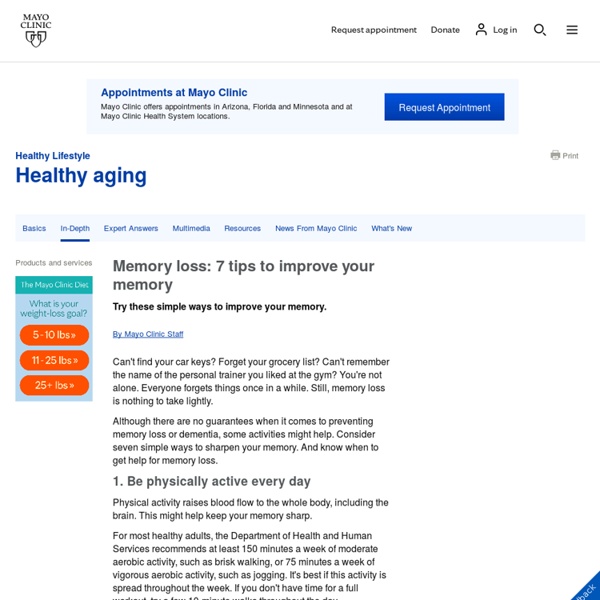Preventing Memory Loss With Aging
She could deal with constantly forgetting her shopping list, and she'd made a habit of writing down where she'd parked her car, each and every time. But in her mid-50s, Janis Mara's memory problems started costing her money. Late fees began piling up because she forgot to pay her bills. "Over time, it really intensified," she says.
Understanding Stress and Its Effect on Seniors
Source You've been waiting your whole life for the freedom of retirement. The golfing.
Signs & Symptoms of Memory Loss - Memory Problems
Memory Problems Signs and Symptoms Memory problems can vary in severity and cause different types of signs and symptoms. Common symptoms associated with memory loss include the following: Confabulation (i.e., invented memories or real memories recalled out of sequence) Confusion Depression Difficulty handling day-to-day affairs, such as balancing a checkbook, keeping appointments, or preparing meals Forgetting people, facts, and events that were previously known well Getting lost and misplacing items Increased difficulty in following directions or taking a step-by-step approach to a familiar task Irritability Language difficulties, such as mixing up words or trouble remembering a word Neurological disorders (e.g., tremors, uncoordinated movements) Poor performance on memory tests Repeating the same stories and/or questions Complications of Memory Problems
Memory Loss & Forgetfulness: Causes, Symptoms, Treatments
Many older people worry about becoming more forgetful. They think forgetfulness is the first sign of Alzheimer's disease. In the past, memory loss and confusion were considered a normal part of aging.
Top 5 YouTube Fitness Channels for Seniors
Going to the gym is a high hurdle for many. For some, it’s dealing with the crowds, paying for the gym membership, or not knowing how to use the machines. For millions of others, getting out of the house is hard enough.
The Non-Alzheimer’s Causes Of Memory Loss
As we and our loved ones age, it’s reasonable to occasionally forget things—we all do it at some points. However, memory loss, which is defined as “unusual forgetfulness” in both short-term and long-term functions, is not. Memory loss is often automatically associated with Alzheimer’s disease, a medical issue that impacts over five million Americans every year. Memory loss may be a primary symptom of Alzheimer’s, but just because an elderly person is experiencing memory loss, it does not mean he or she has the disease.
How to Improve Your Memory: Tips and Exercises to Sharpen Your Mind and Boost Brainpower
Whether you’re looking to sharpen your mind, boost your mental performance, or preserve your memory as you age, these tips can help. How to boost brain power at any age A strong memory depends on the health and vitality of your brain. Whether you’re a student studying for final exams, a working professional interested in doing all you can to stay mentally sharp, or a senior looking to preserve and enhance your grey matter as you age, there’s lots you can do to improve your memory and mental performance.
Alzheimer's disease: Symptoms, stages, causes, and treatment
Alzheimer’s disease is a neurological disorder in which the death of brain cells causes memory loss and cognitive decline. It is the most common type of dementia, accounting for 60 to 80 percent of cases of dementia in the United States. In 2013, 6.8 million people in the U.S. had been diagnosed with dementia.



